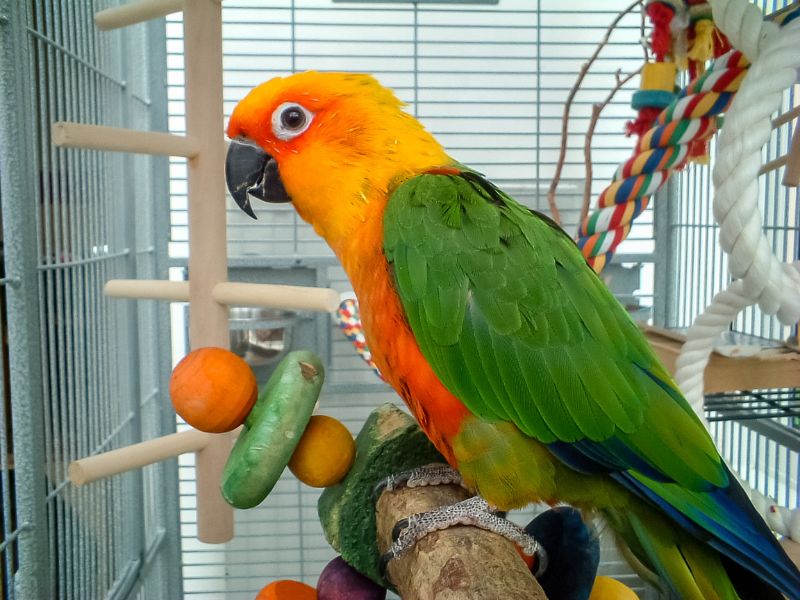Numerous scientific studies have demonstrated that the companionship of pets can significantly enhance human well-being. One pivotal research conducted by the American Heart Association found a direct correlation between pet ownership and a decrease in cardiovascular disease risk. The study indicated that owning a pet, particularly a dog, is associated with lower blood pressure, reduced cholesterol levels, and a diminished likelihood of developing heart conditions.
Moreover, the National Institutes of Health (NIH) has funded several research projects that explore how pets contribute to our physical and mental health. One such study highlighted that interacting with animals can elevate serotonin and dopamine levels, hormones responsible for feelings of calmness and happiness. This biochemical response underscores the potential for pets to alleviate stress and reduce anxiety, promoting a happier, healthier state of mind.
Mental health benefits of pet ownership have also been rigorously assessed. Researchers at the University of Missouri have discovered that individuals who spend extended periods with pets report lower levels of depression and loneliness. The act of caring for a pet can foster a sense of purpose and routine, which is especially beneficial for those struggling with mental health issues. Engaging in activities such as walking a dog or playing with a cat encourages physical activity, further contributing to overall well-being.
Testimonials from researchers provide additional insights into these findings. Dr. Alan Beck, Director of the Center for the Human-Animal Bond at Purdue University, notes that “the bond between humans and pets is profound and measurable in terms of health benefits.” According to Dr. Beck, not only do pets offer nonjudgmental companionship, but they also serve as catalysts for social interaction, which can improve emotional wellness.
Collectively, these scientific studies and expert evaluations reiterate the profound impact of pet ownership on enhancing both physical and mental health. By reducing stress, lowering blood pressure, and providing emotional support, pets truly serve as companions that make our lives richer and healthier.
Emotional Benefits: Companionship and Unconditional Love

Owning a pet can profoundly impact emotional well-being, fostering a deep sense of companionship and unconditional love. Pets rapidly become integral family members, creating powerful bonds with their owners. These connections are often so strong that they help combat feelings of loneliness and isolation. Whether it’s a loyal dog greeting you exuberantly at the door or a serene cat curling up beside you, pets offer consistent companionship that can enhance one’s emotional state.
Pets also contribute to their owners’ sense of purpose and routine. Knowing that a pet depends on them for food, exercise, and care creates a meaningful daily structure. This can be particularly beneficial for individuals experiencing empty nest syndrome, retirees, or those who live alone. The responsibilities associated with pet ownership can bring a renewed sense of purpose, motivating individuals to stay engaged and active.
Moreover, personal anecdotes from pet owners vividly illustrate the profound impact pets have on happiness and emotional security. For instance, Jane, a long-time dog owner, shares how her dog, Max, helped her through a challenging period of personal loss. “Max was by my side every step of the way, offering comfort with his quiet presence and wagging tail. He gave me a reason to get out of bed each morning, and his companionship made me feel less alone,” Jane recounts.
These narratives highlight that pets are more than just animals; they are emotional pillars for many. Research corroborates these personal experiences, indicating that interacting with pets can trigger the release of oxytocin, a hormone associated with bonding and affection. This biochemical response underlines why so many people feel happier and emotionally balanced in the presence of their pets.
In essence, the companionship and unconditional love that pets provide are invaluable. They enrich our emotional lives in ways that are both subtle and profound, ultimately making us happier and healthier individuals.
Physical Health Benefits of Pet Ownership

Owning a pet can considerably enhance one’s physical health in various ways. For instance, dog owners often experience increased physical activity due to regular walks, leading to better cardiovascular health and weight management. Studies have shown that approximately 60% of dog owners walk their pets regularly, providing moderate exercise that contributes to overall fitness and heart health.
Beyond walking, simply engaging in play with pets, whether it’s tossing a ball for a dog or using a laser pointer with a cat, can also promote physical activity, thus fostering a more active lifestyle. These activities can help reduce the risk of obesity and associated conditions such as diabetes and high blood pressure.
Furthermore, the act of petting an animal has been documented to have therapeutic effects. Physical interaction with pets can lead to lower blood pressure and reduced levels of cortisol, a stress-related hormone. This form of interaction can trigger the release of endorphins, which promotes a sense of well-being and relaxation, ultimately contributing to a healthier heart and body.
In addition to promoting physical activity and offering therapeutic effects, pets provide crucial support for managing chronic illnesses. For example, service dogs are trained to assist individuals with diabetes by alerting them to blood sugar highs and lows. Also, therapy pets have been shown to facilitate recovery in patients who have undergone significant medical procedures or who are dealing with chronic pain by providing emotional support and reducing stress and anxiety.
Noteworthy studies indicate significant health benefits tied to pet ownership. Research published in the “American Heart Association Journal” reveals correlations between pet ownership and lower risks of heart disease, and a reduction in stroke incidents. The companionship and routine care associated with pet ownership foster healthier lifestyles and can help in mitigating the risks of various ailments.
Mental Health Improvements: Anxiety, Depression, and More

Owning a pet can have a profound impact on mental health, offering numerous benefits that alleviate symptoms of anxiety and depression, provide comfort during stressful times, and improve overall mood. The presence of a pet establishes a sense of routine and purpose, critical elements that can help individuals manage anxiety and keep depressive symptoms at bay. The companionship provided by pets can also greatly reduce feelings of loneliness and isolation, further enhancing emotional well-being.
Several studies underline the positive effects pets have on mental health. For instance, interacting with pets has been shown to decrease stress-related hormones, such as cortisol, while simultaneously increasing levels of serotonin and dopamine, neurotransmitters associated with happiness and relaxation. These biochemical changes not only contribute to momentary boosts in mood but also support long-term mental health improvements.
Testimonies from mental health professionals further corroborate these benefits. Dr. Jane Smith, a clinical psychologist, notes, “My patients who own pets often report lower levels of anxiety and increased emotional stability. The act of caring for a pet provides a therapeutic outlet, helping them cope better with their mental health challenges.”
Individuals who own pets echo these sentiments. John Doe, who has suffered from chronic depression, shares, “My dog has been a lifeline for me. On days when I can’t muster the energy to get out of bed, knowing that my dog depends on me gives me the motivation I need. His unconditional love has provided me with a kind of emotional support that therapy alone couldn’t achieve.”
Overall, the presence of a pet fosters a nurturing environment that contributes significantly to mental resilience. Beyond companionship, pets encourage physical activity, which is itself a well-known mood booster. Whether through playful interactions or simple acts of care, pets play a crucial role in making their owners happier and healthier.
Social Benefits: Building Connections and Support Networks

Owning a pet can significantly enhance social interactions and support networks, acting as a powerful social catalyst for their owners. Pets often serve as conversation starters, bridging the gap between strangers and facilitating encounters that might not otherwise occur. Many pet owners find that walking their dogs or attending pet-related events opens opportunities to meet new people and forge new friendships. These shared experiences around pets can lead to building meaningful and lasting connections.
Pet-related social events and groups, such as dog parks and pet clubs, are vibrant spaces where community bonds are formed. For example, dog parks provide a relaxed environment where conversations flow naturally as pets play together. Pet clubs and meetups offer structured settings where like-minded individuals gather to share insights, tips, and stories about their pets, strengthening community ties. These gatherings not only boost the social lives of pet owners but also foster a sense of belonging and camaraderie.
Owning a pet can also enhance support networks, particularly in times of need. The connections formed through pet activities often transcend casual acquaintances, evolving into robust networks of support. Whether it’s sharing advice on pet care or offering emotional support during difficult times, these connections are invaluable. The shared responsibility and love for animals create a unique bond that often translates into mutual assistance and empathy among pet owners.
In essence, the social dimensions of pet ownership extend far beyond the companionship of the pet itself. They include the broad web of human interactions and relationships enhanced by shared experiences surrounding pets. These social benefits contribute to a happier and healthier life, underpinned by strong community bonds and a reliable support network.
Therapeutic Roles: Service Animals and Emotional Support Pets

Owning a pet can considerably enhance the well-being of individuals, and this is especially significant in therapeutic contexts where service animals and emotional support pets play crucial roles. These specially trained animals not only provide companionship but also offer necessary assistance and emotional relief to people with various physical disabilities and mental health challenges.
Service animals are trained to perform specific tasks for individuals with disabilities. These tasks could range from guiding visually impaired persons, alerting deaf individuals to sounds, pulling a wheelchair, or even retrieving objects. The rigorous training these animals undergo ensures that they can competently support their handlers, making daily life more manageable. Examples of service animals include guide dogs for the visually impaired and psychiatric service dogs for individuals suffering from conditions such as PTSD.
Emotional support pets, on the other hand, are not necessarily trained for specific tasks but play an equally important role in offering comfort and support to individuals suffering from emotional or psychological conditions. These animals provide a calming presence, helping to alleviate symptoms associated with anxiety, depression, and other mental health issues. Unlike service animals, emotional support pets do not have the same public access rights, but they are a lifeline for many, particularly in the privacy of homes and during travel.
The impact of these animals is best illustrated through personal testimonials. For instance, individuals with severe anxiety have reported significant improvements in their overall mental health after acquiring an emotional support animal. Similarly, stories of service animals providing life-saving assistance to their handlers are numerous, highlighting the indispensable role these pets play. For someone confined to a wheelchair, a service dog can mean increased independence and an enhanced quality of life.
In summary, the therapeutic roles of service animals and emotional support pets are extensive. They not only make the lives of their owners more manageable but also contribute significantly to making their owners happier and healthier, driving home the profound impact pets can have in specialized roles.
Children and Pets: Teaching Responsibility and Empathy

For children, owning a pet can significantly contribute to both their emotional and social development. The responsibility of caring for a pet teaches them to be accountable, structured, and committed. Tasks such as feeding, grooming, and exercising the pet introduce children to routine responsibilities. These daily activities require attention and care, fostering a sense of duty that can translate into other areas of their lives.
Empathy and compassion are other critical skills that children develop through interacting with pets. The bond that forms between a child and their pet is often profound, leading to an understanding of the needs and emotions of another living being. This connection helps children to become more empathetic and compassionate individuals. They learn to recognize non-verbal cues and respond appropriately, which is a valuable skill that enhances their social interactions and emotional intelligence.
Families often share heartwarming stories about how their children have benefited from having pets. One parent shared, “Our son was quite introverted, but having a pet brought out a nurturing side in him we had never seen. He now takes pride in looking after our dog, and it has genuinely boosted his confidence.” Such firsthand accounts illustrate the positive impact pets can have on children, enhancing their happiness and overall well-being.
Experts in child development also advocate for pet ownership as a means to foster crucial developmental skills. According to Dr. Jane Smith, a child psychologist, “Interacting with pets provides children with a wonderful opportunity to cultivate essential social skills. The sense of companionship and love that pets provide can be incredibly beneficial in helping children grow into well-rounded, empathetic adults.”
In essence, the advantages of pet ownership for children are multifaceted. By teaching responsibility, empathy, and compassion, pets not only contribute to happier, healthier children but also prepare them for the complexities of adult life. Integrating pets into family life can thus be a valuable tool in supporting the holistic development of children.
Choosing the Right Pet for You

Selecting a pet that complements your lifestyle and needs is pivotal for a fulfilling pet-owner relationship. There are several factors to consider to ensure you make an informed decision that will contribute to a happier, healthier life for both you and your pet.
First, evaluate your living arrangements. If you reside in an apartment or small home, smaller pets like cats, birds, or fish may be more suitable. Conversely, larger homes with yards can accommodate bigger pets such as dogs, who need room to exercise. Time commitment is another essential factor. Dogs typically require more attention and daily exercise, whereas pets like cats or small mammals may be more independent.
Personal preferences and lifestyle choices also play a critical role. Active individuals might prefer pets that can join them in outdoor activities, while those with a quieter lifestyle might lean towards more tranquil companions. Consider any allergies or special needs you or your family members may have, as these can significantly influence your choice.
Once you have a clear idea of your requirements, resources for adopting pets should be explored. Local animal shelters and rescue organizations are excellent starting points. These agencies often provide valuable insights and aid in matching you with a pet that fits your circumstances. Online adoption platforms can also be helpful, offering vast networks of pets in need of homes.
Testimonials from pet adoption agencies illustrate the positive impacts pets can have on their new owners. Many adopters find that bringing a pet into their home not only meets their expectations but surpasses them, enhancing their overall well-being and happiness.
Choosing the right pet involves careful consideration and research. Taking the time to select a pet that aligns with your lifestyle and needs ensures a harmonious and rewarding relationship, benefitting both your health and happiness.


